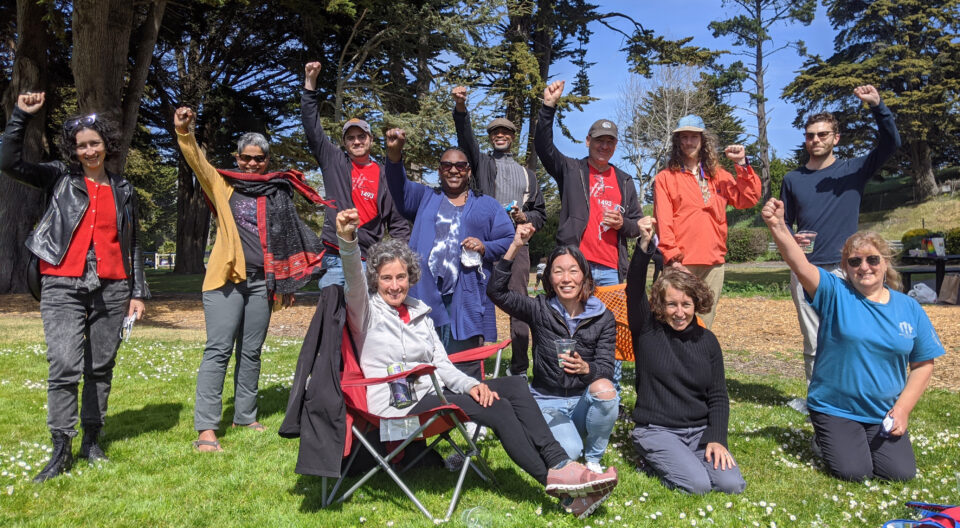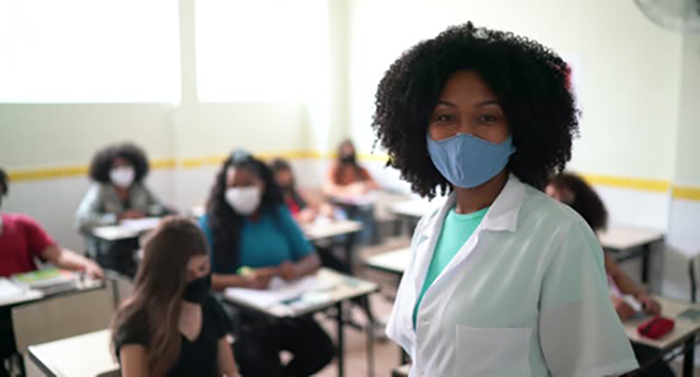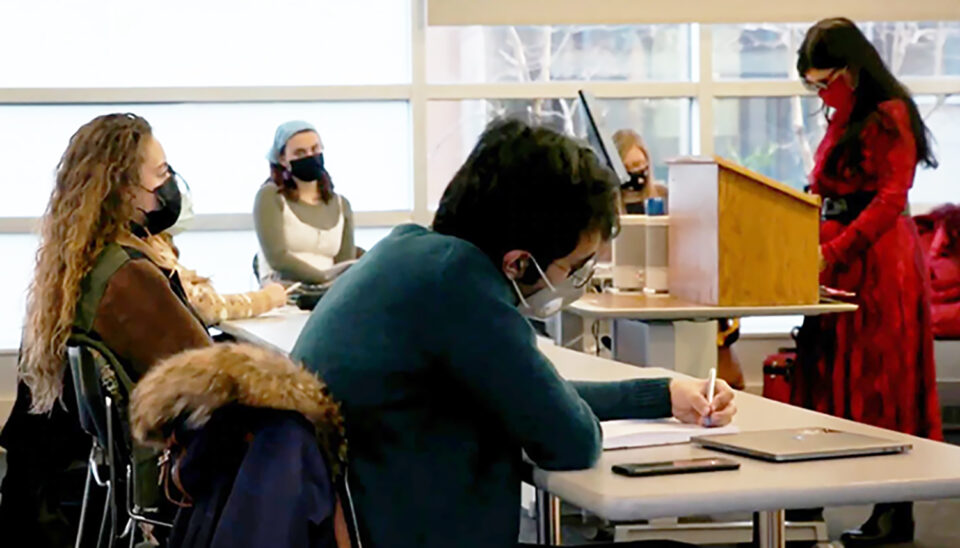Letter to the Advocate
We are still in a pandemic; District needs to take our public health more seriously
Dear Colleagues,
The images below are enrollment data for Skyline College that were presented by Ingrid Vargas, Dean of Planning, Research, Innovation and Effectiveness (PRIE) during the Skyline Townhall meeting with President Moreno on August 10. The data that was presented gave me pause.
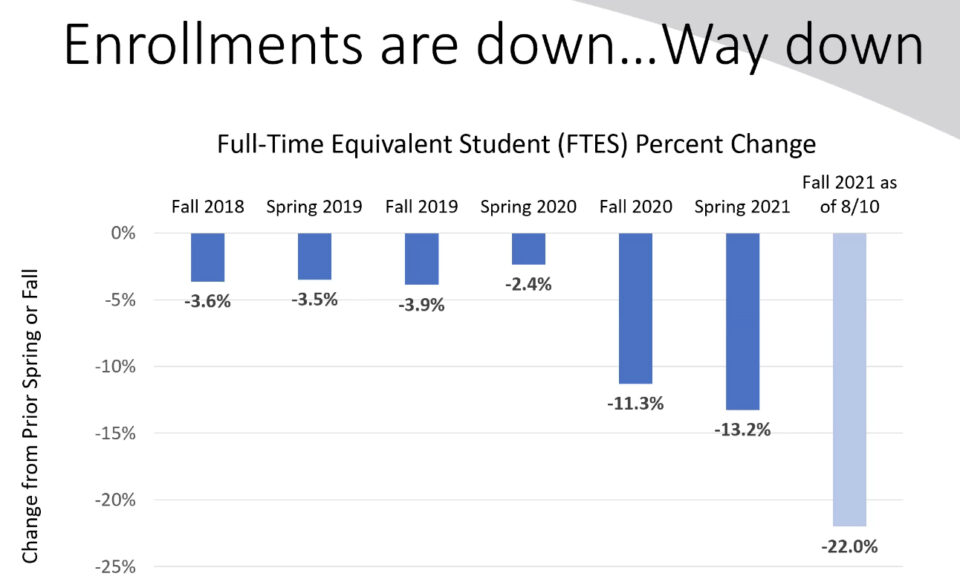
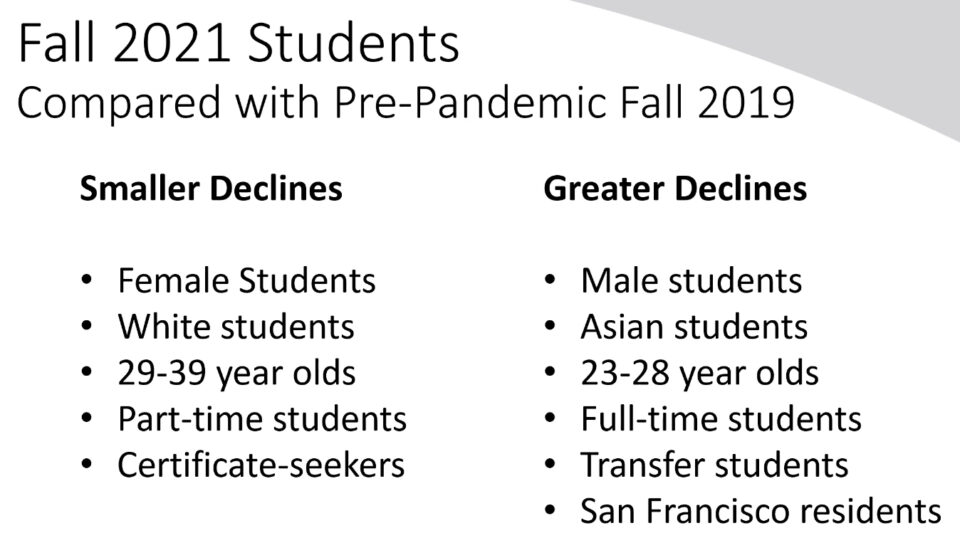
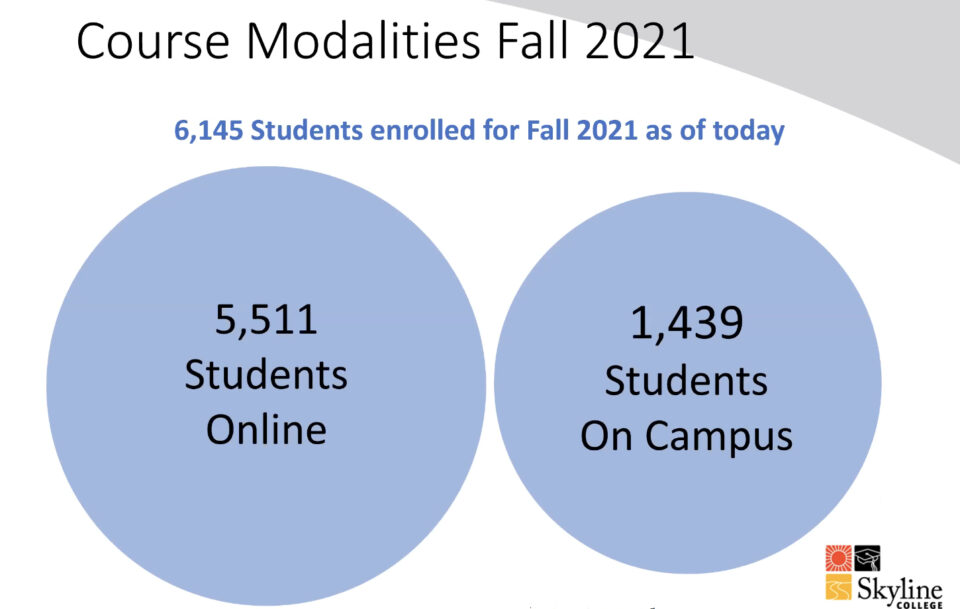
[View recording of August 10 Skyline Townhall]
At the College Townhall last April, Dr. Moreno indicated that there were 1500 students on campus (Spring 2021), and she wanted to double that number by Fall 2021.
There are fewer in-person students now (1439 students enrolled in Fall in-person courses, as of August 10) than in the Spring.
At the July Board of Trustees meeting, AFT 1493 President Monica Malamud shared recent data from the SMCCCD which indicated that 100 courses had been cancelled across our district for what was perceived as “low enrollment.” I had a class with 2 students during the time of the cancellations but somehow it was spared. That class now has 13 students which surpasses the minimum (10) for our current MOU. Many colleagues were not as lucky—some of whom were adjuncts and lost their livelihoods.
Why didn’t we stay with our original plan? We were to work remotely in the Fall and, based on science, transition to in-person work for the Spring/Fall 2022. Instead the chaos of cancellations and job loss prevailed. The pressure to attend in-person classes has negatively impacted students, many of whom remained concerned, confused and reluctant to return to in-person instruction due to the strength of the Covid variants. Other students have expressed their comfort with remote learning and that it accommodates their family and work schedules. Some of this may be reflected in our enrollment data.
The virus remains in charge
A year ago the administration declared Fall 2020 as a “return to normal.” Yet there wasn’t anything normal or typical about teaching remotely. Recently Chancellor Claire declared a “safe return” to in person work. Yet the data consistently indicates that the Covid-19 pandemic dominates our landscape. The virus remains in charge and we need to respect that fact and respond accordingly.
A number of us spent the summer working diligently on Skyline’s Health and Safety and Emergency Preparedness (HSEPC) concerns. We pressed hard for specific, accurate HVAC and Filtration (MERV 13 filters) data for our buildings. Filtration has been described as in place and operational “where possible” but what does that mean? We need an outside air source for good ventilation but that is not possible when air quality is unhealthy/hazardous such as during wildfires. The same is true for serious rainstorms when everyone is indoors with outside and “natural” ventilation closed. We are still waiting for this data which is essential for student and employee health.
Employees have been pragmatic. We have repeatedly asked for clear, specific data to improve the safety in our workspaces. These requests have been met with comments by administrators that we are “anxious”, “in a dark place,” or “worrying about unknowns.” At our May HSEPC meeting, I responded, “If people are anxious, it’s because they have all been paying attention.”
We pushed for mask mandates and thankfully San Mateo County implemented their own which the SMCCCD is now following. It remains unclear what the consequences are for a student who does not wear a mask. As of our last HSEPC meeting, there are no stated protocols in the Student Handbook and or the Student Code of Conduct. It has been stated that Public Safety should be called if students refuse to wear a mask. Other options may be preferable for a constructive student response to mask wearing…
The vaccine “mandate” has so many exceptions (I don’t necessarily disagree with them) it is no longer a mandate. Finally, the FDA has granted approval for the Pfizer vaccine which can remove the “Emergency Approval” to the mandate exception. The other exceptions remain in place. The need for booster shots (so soon!) was made obvious by the growing number of breakthrough infections among the vaccinated. The delta variant has rendered vaccine effectiveness to approximately 64%-50%. When this data was presented in meetings, the administration responded that they would have been happy with 50% effectiveness. But would we need to work in person?
District unwilling to enforce social distancing or to provide air filters
The administration also expressed that social distancing on campus, even in areas of high occupancy, won’t be enforced. Additionally, air filters were to be used only in the Health Centers or only under “special circumstances” when employees have asked for more protections to be put in place before a return to work.
We are faculty in an institution of higher learning. As such we have a responsibility, vaccinated or not, to do our best to prevent more variants and STOP the SPREAD.
I am very concerned about the trajectory of our college and district. Our mission is out of focus and needs revitalization. Strong public health practices executed in the context of education, equity and social justice would be a solid beginning.
In Unity,
Lori Slicton
Skyline College, Anthropology,
AFT 1493 Skyline College HSEPC rep.

